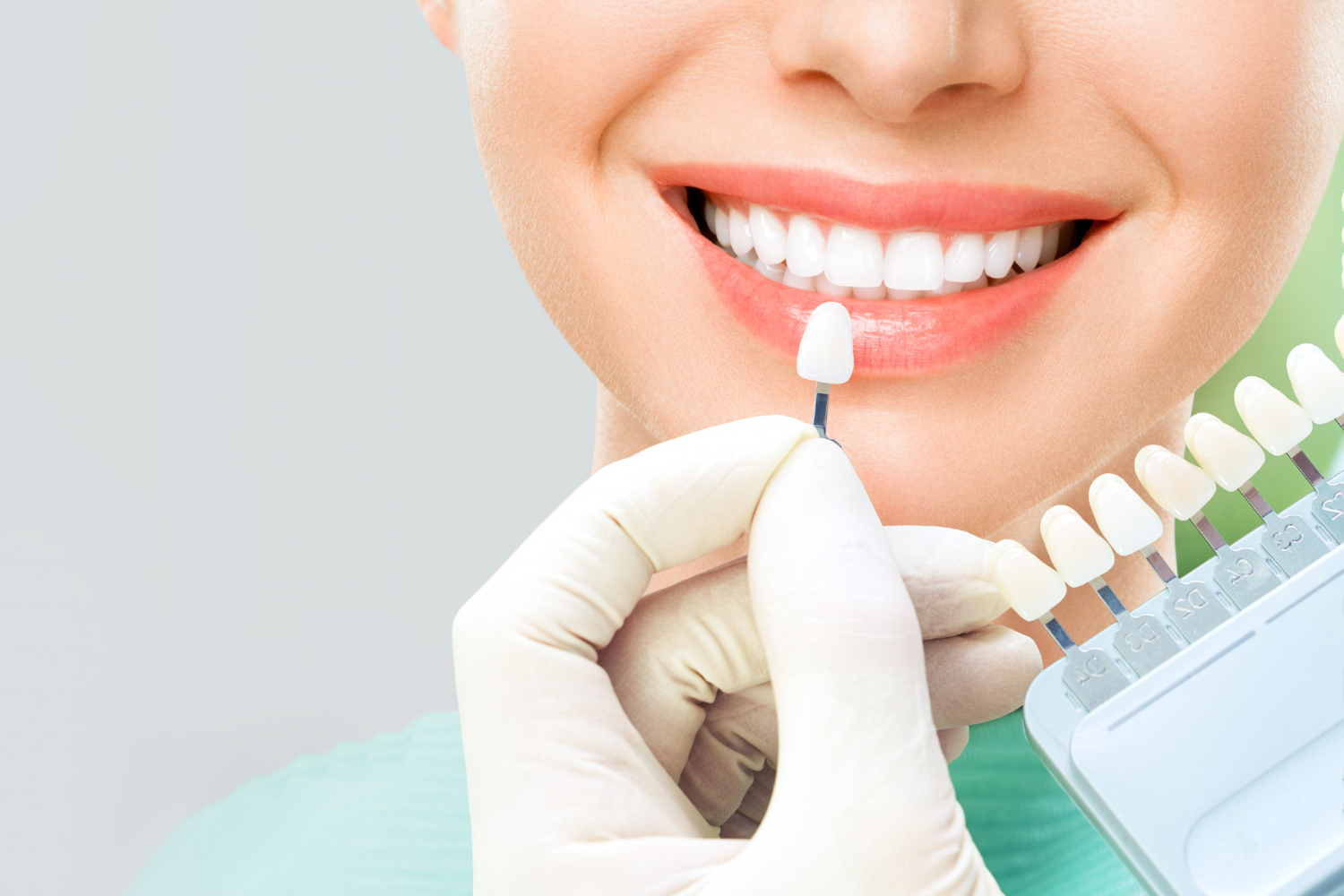Veneers are a popular cosmetic dental treatment that can transform the appearance of your smile. They are thin shells made of tooth-colored materials, such as porcelain or composite resin, that are custom-made to fit over the front surface of teeth. Veneers offer a versatile solution for enhancing the shape, size, color, and overall aesthetics of teeth, helping you achieve a beautiful and confident smile.
Benefits of Veneers
Veneers offer several benefits, making them a sought-after option for smile makeovers. Some of the key advantages include:
- Enhanced appearance: Veneers can dramatically improve the overall appearance of your teeth and smile. They can address various cosmetic concerns, such as chipped, cracked, or misshapen teeth, and provide a harmonious and balanced smile.
- Improved tooth color: Veneers can effectively cover teeth with severe discoloration or stains that are resistant to teeth whitening treatments. They can give you a brighter and more vibrant smile.
- Correction of tooth imperfections: Veneers can correct various dental imperfections, including small gaps between teeth, minor misalignments, and uneven tooth contours. They can create a more uniform and visually appealing smile.
- Minimally invasive procedure: Compared to other cosmetic dental treatments, veneers involve minimal tooth preparation. In most cases, only a small amount of enamel is removed from the front surface of the teeth to accommodate the veneers, preserving the natural tooth structure.
Types of Veneers
There are two main types of veneers commonly used in dental practices:
- Porcelain veneers: Porcelain veneers are thin, custom-made shells crafted from high-quality dental porcelain. They are highly durable and offer excellent aesthetics, mimicking the natural appearance of teeth. Porcelain veneers are stain-resistant and can provide long-lasting results.
- Composite veneers: Composite veneers are made of tooth-colored composite resin material. They are directly applied and sculpted onto the teeth, providing a more conservative and cost-effective option compared to porcelain veneers. While composite veneers are less durable than porcelain, they can be repaired if damaged.
Evaluation and Preparation
Before getting veneers, a comprehensive dental examination is necessary to evaluate your oral health and determine if veneers are suitable for you. The treatment planning phase involves discussing your goals and expectations with your dentist, who will consider factors such as tooth color, shape, size, and alignment.
To prepare the teeth for veneers, a small amount of enamel is typically removed from the front surface of the teeth. This ensures a proper fit and allows the veneers to blend seamlessly with your natural teeth. The amount of tooth reduction is minimal and varies depending on individual cases.
Veneer Placement Process
The placement of veneers generally involves the following steps:
- Impression of teeth: Your dentist will take impressions of your teeth to create customized veneers that precisely fit your mouth. These impressions are sent to a dental laboratory where the veneers are fabricated.
- Temporary veneers: While your permanent veneers are being made, temporary veneers may be placed on your teeth to protect them and provide a preview of the final result.
- Bonding of permanent veneers: Once the permanent veneers are ready, your dentist will carefully bond them to the front surface of your teeth using a dental adhesive. The veneers are placed precisely, and any necessary adjustments are made to ensurea perfect fit and aesthetic outcome.
Aftercare and Maintenance
To ensure the longevity and optimal appearance of your veneers, it’s important to maintain good oral hygiene practices. Here are some aftercare tips:
- Oral hygiene practices: Brush your teeth at least twice a day with a soft-bristle toothbrush and fluoride toothpaste. Floss daily to remove plaque and food particles from between your teeth and around the veneers.
- Regular dental visits: Visit your dentist regularly for check-ups and professional cleanings. Your dentist will monitor the condition of your veneers and address any issues promptly.
- Avoiding habits that can damage veneers: Avoid biting or chewing on hard objects, such as ice, pens, or fingernails, as this can chip or crack your veneers. Additionally, limit your consumption of staining substances like coffee, tea, and tobacco to maintain the color of your veneers.
Longevity and Potential Considerations
With proper care, veneers can last for many years. However, it’s important to be aware of potential risks and considerations. Some factors to keep in mind include:
- Veneers may eventually require replacement due to normal wear and tear over time.
- In some cases, veneers may become dislodged or damaged. If this occurs, contact your dentist for evaluation and potential repair or replacement.
- While veneers are stain-resistant, it’s important to practice good oral hygiene and avoid excessive consumption of staining substances to maintain their color.
Alternatives to Veneers
Veneers are a popular choice for smile enhancement, but they may not be suitable for everyone. Here are some alternatives to consider:
- Teeth whitening: If your main concern is tooth discoloration, professional teeth whitening treatments may be a more appropriate option. This non-invasive procedure can effectively lighten the shade of your natural teeth.
- Dental bonding: Dental bonding involves applying tooth-colored resin directly to the tooth surface to improve its appearance. It can be a cost-effective solution for minor cosmetic concerns.
- Orthodontic treatments: If your teeth are significantly misaligned or have spacing issues, orthodontic treatments such as braces or clear aligners may be recommended to achieve a straighter smile.
Conclusion
Veneers offer a versatile and effective solution for enhancing the appearance of your smile. Whether you choose porcelain or composite veneers, the result can be a natural-looking and attractive smile that boosts your confidence. Remember to consult with a qualified dentist to determine if veneers are the right option for you and to ensure proper evaluation, preparation, and placement for optimal outcomes.
FAQs
- Are veneers reversible?
No, the process of preparing teeth for veneers involves removing a small amount of enamel, which is irreversible. However, veneers can be replaced if necessary. - Do veneers require special care?
Veneers do not require any special care beyond maintaining good oral hygiene practices and regular dental check-ups. - Can veneers fix crooked teeth?
Veneers can help improve the appearance of mildly misaligned teeth, but for more severe cases, orthodontic treatments may be necessary. - Are veneers stain-resistant?
Porcelain veneers are highly stain-resistant, while composite veneers may be more prone to staining over time. - Do veneers look natural?
With advancements in dental technology, veneers can be customized to match the color, shape, and translucency of your natural teeth, resulting in a natural-looking smile.




